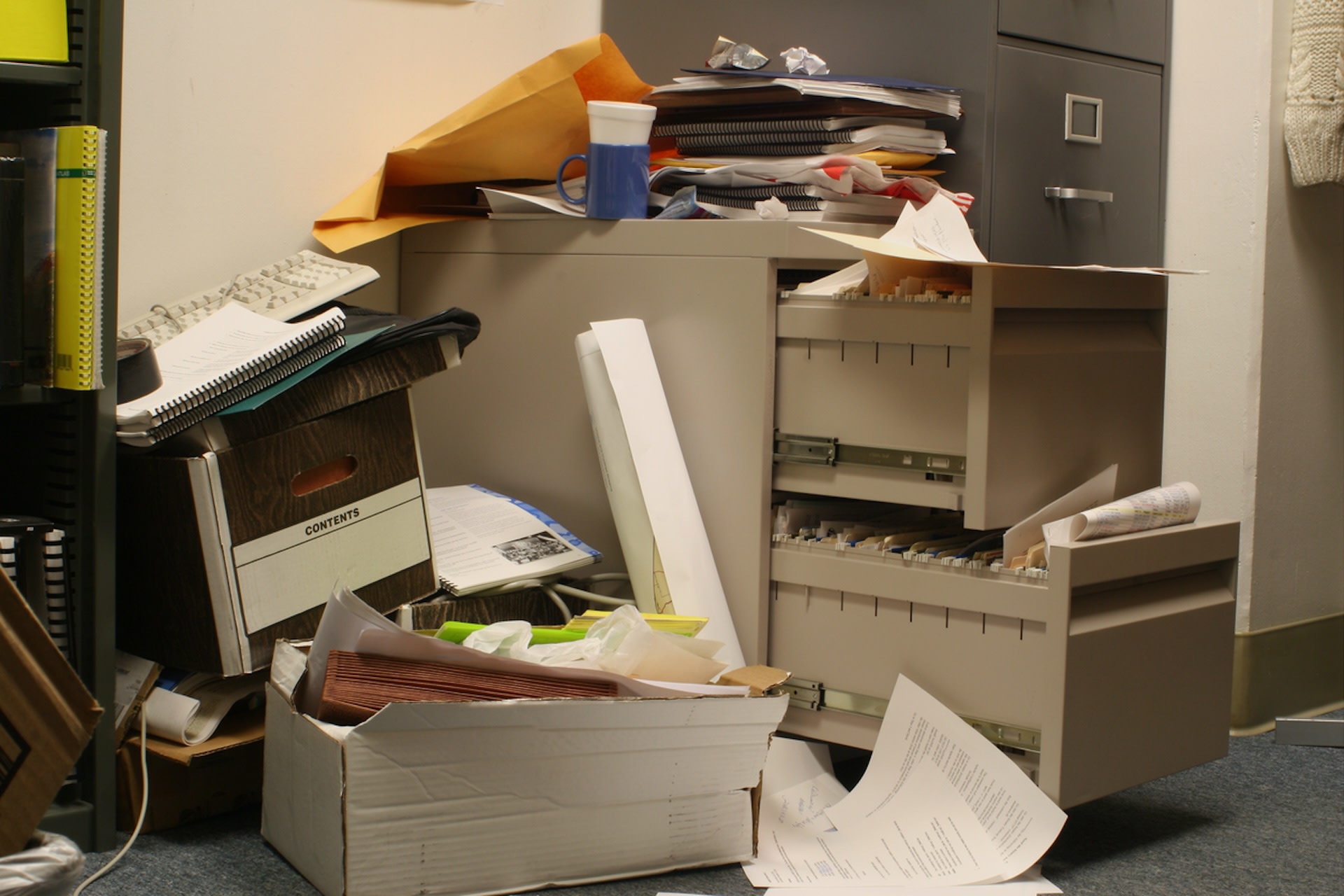Composting food waste, eating more plant-based meals, and avoiding single-use plastic are all simple ways to make positive environmental changes at home. It might be trickier to enact similar changes at the office, though, with so many moving parts and a number of policies or practices out of your control.
But office waste is a significant problem, and businesses can play an important role as we try to save resources and limit the rate of global heating.
What's the problem with office waste?
Unsustainable Magazine cited data from a collaborative project headed up by the United Nations that found businesses account for 20% of the world's waste, and the role of offices in that figure should not be overlooked.
The publication also referenced figures from the Environmental Protection Agency that say paper and cardboard make up 25% of landfill waste and 33% of municipal waste.
Electronic waste, or e-waste, is also a concern. The disposal of electronics like computers, printers, cell phones, scanners, and other typical office technology sends nondegradable plastics to landfills, as well as some rare metals and toxic substances.
The U.N. study also found that about 59 million tons of e-waste were produced in 2019, of which only 17.4% were collected and recycled.
If these products end up in landfill sites, they will contribute to the production of methane, a planet-warming gas far more potent than carbon dioxide.
But the financial implications are staggering, too. The value of recoverable materials disposed of within e-waste, including gold, silver, platinum, and copper, had an estimated value of $7 billion in 2019.
Why does office waste matter?
It's all about accountability. Businesses should take responsibility for their negative impact on the planet, and waste is one issue to tackle.
Relying on individual workers to do their part is fine, but systemic change is necessary to make a difference. That responsibility falls on business leaders.
While stopping pollution that contributes to global heating is vital for the health of the planet, offices are also essentially throwing money in the trash.
According to research from U.K.-based waste management company Bywaters, recycling materials appropriately can reduce waste disposal costs by 70%, which would save the average U.K. business roughly $30,000 annually.
How can office waste be reduced?
There are so many ways to enact positive changes in an office environment. Switching off the power needed for electronics when not in use, banning disposable coffee cups, recycling paper and cardboard, controlling office heating and cooling more sensibly, and avoiding sending old furniture and electronics to landfill are just some things to consider.
But bigger, more substantial changes like relying more on sustainable sources for office power or rainwater harvesting are the types of investments that will not only pay dividends for business finances, but for the health of the planet, too.
Join our free newsletter for cool news and actionable info that makes it easy to help yourself while helping the planet.









